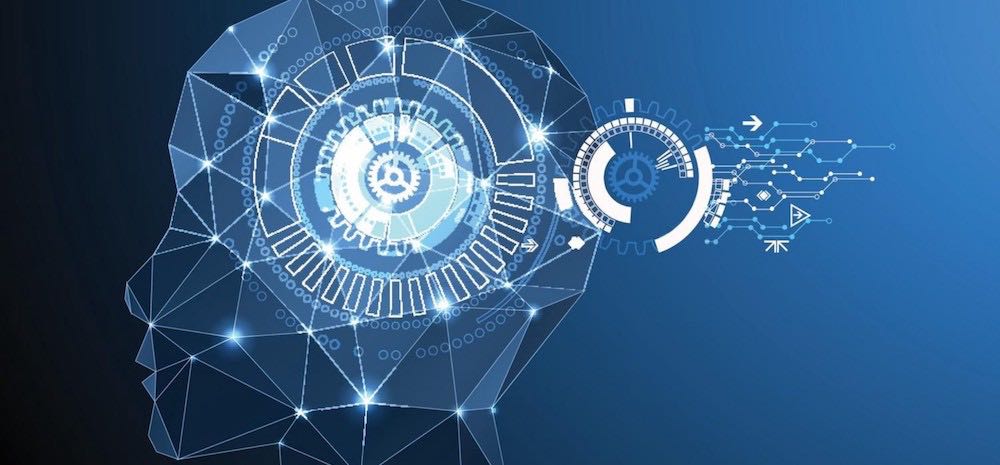6 Myths About Chatbots and Artificial Intelligence Debunked!
There is so much misinformation prevalent about Artificial Intelligence and Chatbots that people have started to believe some of them as true.

There has been much hype around chatbots and Artificial Intelligence (AI) since the last two years. They are touted as mega-technologies that will take over humans, and completely change the way we live, work and interact. In fact, according to a PwC report, 72% of business leaders perceive AI as a business advantage and believe that it will be fundamental in future.
As far as chatbots are concerned, their future looks bright too. It is predicted that more than 80% of businesses may implement some sort of chatbot automation by 2020.
Well, the reality doesn’t seem to be far away. From virtual assistants to self-driving cars, chatbots and AI are pervading every space. And, there are robots like Sophia which has been even granted citizenship from Saudi Arabia, a first-of-its-kind move in the history of robots!
Will these technologies get more advanced? Will machines develop the human ability to think? Are they the solutions to all our problems? Is it so easy to build them? More the questions, the more fabricated answers are doing the rounds.
Let’s debunk all the myths and get the facts right about chatbots and AI.
Contents
1. AI Will Threaten Human Jobs
Robots will destroy the jobs – this is the biggest threat supposedly looming over people. Naturally, people are worried about their job security. The real truth is that AI will lead to big thinking. A PwC report mentions that AI will alleviate repetitive tasks such as paperwork (82%), scheduling (79%) and timesheets (78%).
This means that people will get more opportunities to focus on strategic, innovative and creative tasks. A Gartner study predicts that while AI will eliminate 1.8 million jobs, it will also create 2.3 million jobs by 2020!
2. Bots Will Make Mobile Apps Obsolete
Have tablets made smartphones obsolete? Nah. Similarly, bots and mobile apps will also co-exist. The organizations will leverage both bots and apps to grow their business. Take Uber for example. Its customers can hail a cab through an app as well its Facebook messenger bot.
However, the market for mobile apps has saturated, so only those which perform better and augment customer experience will survive. Bots will become a medium to use apps. Additionally, bots still need messaging apps such as WhatsApp, Facebook and Twitter to work.
3. Artificial Intelligence Will Take Away Natural Intelligence
With technologies such as Deep Learning and Natural Language Understanding (NLU), it is expected that machines may start thinking on their own, answer all our questions and do all our work. It is also being said that human dependency on AI will increase so much that it will make mankind dumber! Did calculators and computers make you less intelligent? Did automation make work more complex for humans? Not at all, in fact, they made our lives easier. So will AI.
The thinking and emotional capability is the gift that only humans have. Machines may become smart and make the way of doing things smarter, but they won’t make us dumb.
4. All Bots Use AI
Not all chatbots use AI. Most chatbots are rule-based and follow a simple, autonomous process, something along the lines of a decision tree. Currently, there are three major types of chatbots: script-driven (they run on a pre-defined script), interference-driven (based on NLU, deep learning and cognitive learning to respond like humans) and data-driven (give outputs based on patterns learned from previous conversations). All these bots may use AI in some form or another.
However, building pure AI-based chatbots is a complex affair as it needs large sets of data on real human conversations.
5. Machines Will Start Learning the Way Humans Learn
A few months ago, Google’s Deep Mind AI shocked everyone when it started walking, jumping, climbing and running by trial and error on its own. In future, robots may not need developers to program them for every function; they may self-learn. This could be possible to due to neural network modelled loosely on the human brain. It is an artificial network which is made from densely interconnected processing nodes that enables machines to learn from observation.
However, machines still can’t process the data creatively or respond instinctively like humans do. These traits are unique to a human brain which has more neurons than all machine connections on Earth!
6. Bots are Easy to Build
There are various tools and platform to build bots. However, it is the idea of what the bot would do and how much value it will add makes all the difference. There is tons of data that the developers need to process, frame rules around it and convert the information into a conversational flowchart. In order to differentiate one bot from another, it requires personality, storytelling and creative media use. So, it is a lot of work to build bots!
Chatbots and AI are the reality of today and future. They will not go anywhere, but become smarter to provide augmented experiences.
About the Author: This article is contributed by Amit Dua – Co-Founder & CEO at Signity Solutions and ValueAppz.
